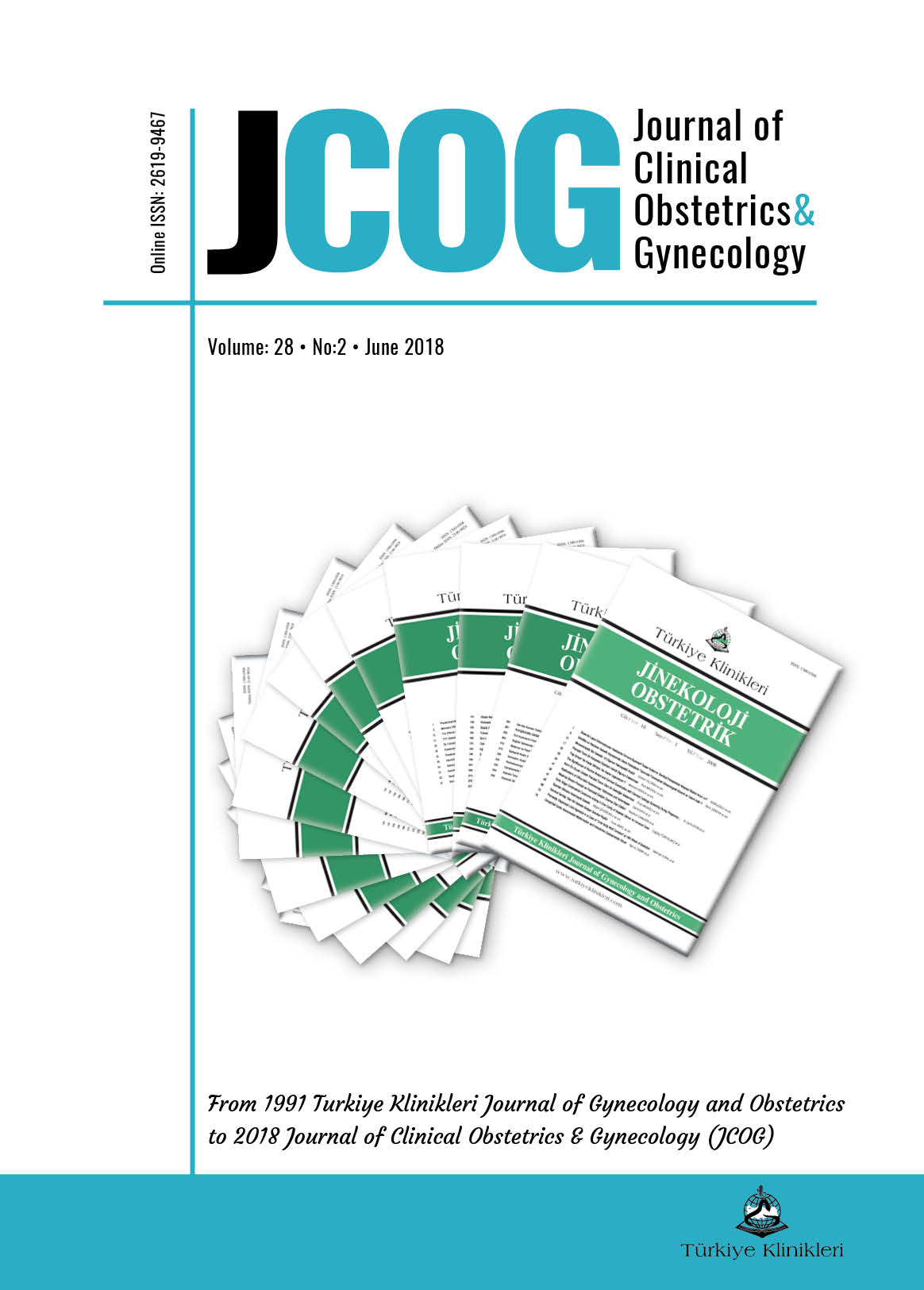Open Access
Peer Reviewed
REVIEW
3372 Viewed1697 Downloaded
The Effects of Obesity and Bariatric Surgery on Fertility
J Clin Obstet Gynecol. 2018;28(2):65-74
DOI: 10.5336/jcog.2017-55717
Article Language: EN
Article Language: EN
Copyright Ⓒ 2025 by Türkiye Klinikleri. This is an open access article under the CC BY-NC-ND license (http://creativecommons.org/licenses/by-nc-nd/4.0/)
ABSTRACT
The prevalence of obesity, one of the most common health problems in the world, has shown an increase in the recent years. Obesity has detrimental effects on the reproductive system. Furthermore, infertility is more common in obese patients. Weight loss has been found to have positive effects on the reproductive system of these patients. Although the reason is not clearly known, a decrease in the amount of fat, affects fertility in a positive way, as a consequence of normalization of the hormonal balance and sexual activity. Among the weight-loss strategies, caloric restrictions and exercise constitute the first step. However, certain surgical procedures called bariatric surgeries are also performed on some obese patients, for contributing to weight loss. Till date, many bariatric surgical procedures have been defined, which can be classified as malabsorptive, restrictive, and combined procedures. The effect of various surgical techniques on the fertility in patients treated with bariatric surgery is still controversial. A multicentric study had stated that there is no difference between restrictive and malabsorptive bariatric surgery techniques. Obesity has been shown to have serious potential effects on the male and female fertility factors. Semen parameters investigated as factors associated with obesity include, sperm concentration, number and motility. In some recent studies, it has been reported that increased BMI could lead to infertility by disrupting the hormonal profile and/or causing DNA damage in the sperm. Studies have also reported that obese men treated with bariatric surgery showed significantly decreased estrogen levels, while having appreciably increased testosterone, SHBG and FSH levels, and improved sexual functions. To conclude, obesity is a factor that reduces the fertility potential in both, men and women. While dealing with obesity, dietary habits should be regulated and physical activity should be increased at first. Bariatric surgery should be discussed in cases where all other comprehensive measures have failed to yield any results.
The prevalence of obesity, one of the most common health problems in the world, has shown an increase in the recent years. Obesity has detrimental effects on the reproductive system. Furthermore, infertility is more common in obese patients. Weight loss has been found to have positive effects on the reproductive system of these patients. Although the reason is not clearly known, a decrease in the amount of fat, affects fertility in a positive way, as a consequence of normalization of the hormonal balance and sexual activity. Among the weight-loss strategies, caloric restrictions and exercise constitute the first step. However, certain surgical procedures called bariatric surgeries are also performed on some obese patients, for contributing to weight loss. Till date, many bariatric surgical procedures have been defined, which can be classified as malabsorptive, restrictive, and combined procedures. The effect of various surgical techniques on the fertility in patients treated with bariatric surgery is still controversial. A multicentric study had stated that there is no difference between restrictive and malabsorptive bariatric surgery techniques. Obesity has been shown to have serious potential effects on the male and female fertility factors. Semen parameters investigated as factors associated with obesity include, sperm concentration, number and motility. In some recent studies, it has been reported that increased BMI could lead to infertility by disrupting the hormonal profile and/or causing DNA damage in the sperm. Studies have also reported that obese men treated with bariatric surgery showed significantly decreased estrogen levels, while having appreciably increased testosterone, SHBG and FSH levels, and improved sexual functions. To conclude, obesity is a factor that reduces the fertility potential in both, men and women. While dealing with obesity, dietary habits should be regulated and physical activity should be increased at first. Bariatric surgery should be discussed in cases where all other comprehensive measures have failed to yield any results.
MENU
POPULAR ARTICLES
MOST DOWNLOADED ARTICLES





This journal is licensed under a Creative Commons Attribution-NonCommercial-NoDerivatives 4.0 International License.










